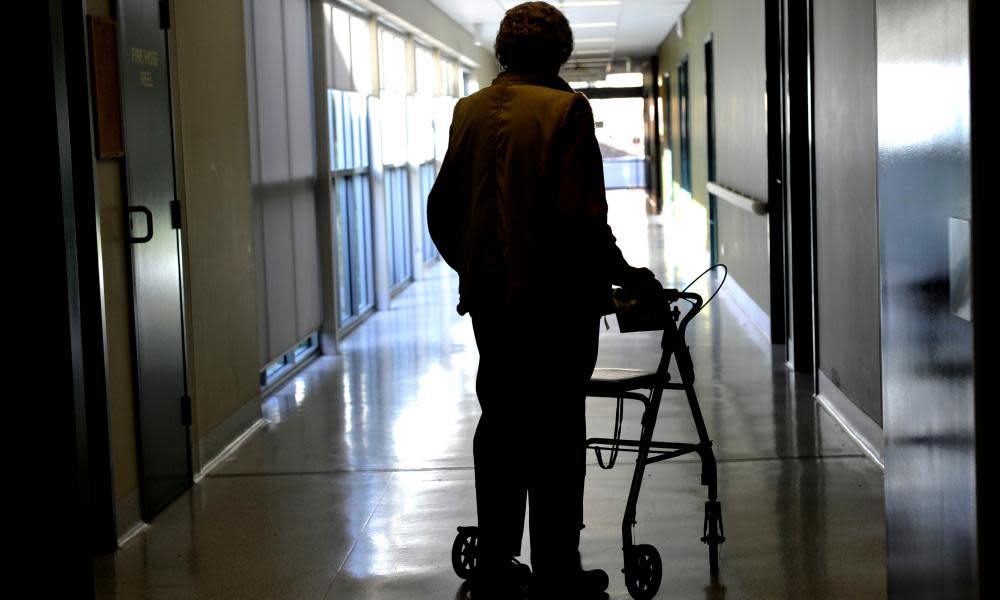Australia’s aged care system needs ‘fundamental reset’, Brendan Murphy tells inquiry

The head of the federal health department, Prof Brendan Murphy, has conceded that funding of the country’s aged care system requires a “fundamental reset”.
Appearing at the royal commission into aged care on Friday, Murphy, who was appointed department secretary in July after serving as the country’s chief medical officer, gave evidence on the sector’s funding model. He opened by saying the department was “aligned with the royal commission” in believing the sector “does need a fundamental reset”.
“I think we clearly accept the system does need a significant redesign, including in the costing and funding and transparency of the system,” he told the commission.
In March the senior counsel assisting the commission, Peter Gray QC, made submissions arguing funding for residential and home aged care as well as support services should move to a single, demand-driven eligibility assessment process based on need.
Related: Conservatives once championed the sacredness of every human life – until Covid | Jeff Sparrow
Currently, the number of subsidised aged care places in Australia is controlled by an aged care provision ratio which decides how many places of residential or home aged care support will be funded for people over 70
On Friday, Murphy said the department agreed funding for the sector should move to a demand-driven system underpinned by a “rigorous assessment process”.
“I think we would agree with the contention counsel that it should move to a demand-driven system,” he said.
“A system where people are appropriately assessed for need by a rigorous assessment process and the system is appropriately and transparently funded, but I think we would agree it should move to essentially a demand-driven system
“In fact it is demand-driven in residential care at the moment and we are endeavouring with the frequent releases of home care packages to meet the demand of home care. So generally the government is supporting that general direction.”
Murphy also accused aged care providers of being “creative” in claiming funding from the Aged Care Funding Instrument before changes introduced in the 2016 budget.
“While the population has been ageing and increasing [in] frailty it is inconceivable that the rate of ACFI growth over a short period of time actually reflected an increase in real frailty and need,” he said.
“I used to run a health service which had an aged care facility and there were consultants who were going around offering their services to maximise ACFI funding.
“It was a natural behaviour of the sector when you have a system which is [based on] self assessment and you can claim to maximise revenue. There is no doubt in my mind that there was very creative claiming practices by some providers.”
The royal commission has heard evidence of wide-spread failings in the sector. In August it criticised the Morrison government for failing to establish independent monitoring and reporting of aged care quality outcomes, and earlier in September it heard evidence from the sector regulator that it lacked the resources to fully conduct compliance checks on residential facilities.
The commission has previously heard that an extra $621m per year is needed to lift all aged care homes in Australia up to “basic standards”. On Friday, Gray presented figures which he said showed that indexation on aged care subsidies had been “inadequate” in matching the rate of growth in costs for providing aged care “over a very long period”.
“Certainly the indexation has not matched the rate of growth in wages for example and costs in that period,” Dr Nick Hartland the department’s first assistant secretary said.

 Yahoo News
Yahoo News 
